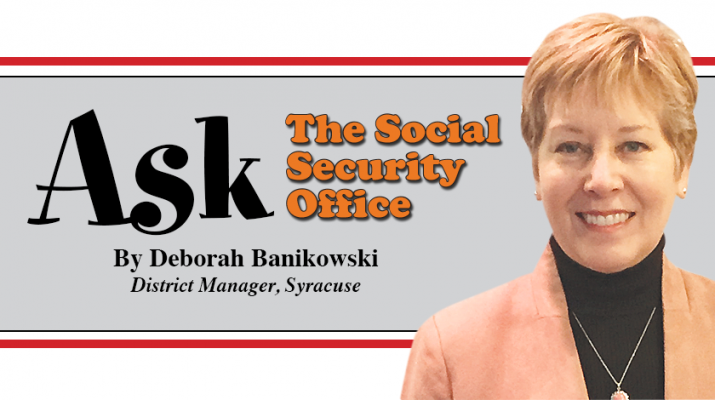By Deborah Banikowski
A lot of people have a difficult time understanding the difference between Medicare and Medicaid. Both programs begin with the letter “M.” They’re both health insurance programs run by the government. People often ask questions about what Medicare and Medicaid are, what services they cover, and who administers the programs.
Medicare
Let’s start with Medicare. Medicare is the national healthcare program for those aged 65 or older and the disabled. You pay for some Medicare expenses by paying the Medicare tax while you work. The Centers for Medicare & Medicaid Services is the agency in charge of both Medicare and Medicaid, but you sign up for Medicare A (hospital) and Medicare B (medical) through Social Security.
You can apply for Medicare online from the convenience of your home at the link on our website: www.socialsecurity.gov/medicare/. If you’re already receiving Social Security retirement benefits when you reach age 65 or are in the 25th month of receiving disability checks, we will enroll you automatically.
Medicare Part C (Medicare Advantage) and Part D (prescription drug) plans are available for purchase in the insurance marketplace. Social Security administers a program called Extra Help to help people with low income and low resources pay for premiums, co-pays, and co-insurance costs for Part D plans. You can find out more about Extra Help and file for it at www.socialsecurity.gov/medicare/prescriptionhelp. Each year, The Centers for Medicare & Medicaid Services publishes Medicare and You available online at its website at www.medicare.gov/medicare-and-you/medicare-and-you.html. This publication is a user’s manual for Medicare.
Medicaid
Each state runs their own Medicaid program under guidance from the Centers for Medicare & Medicaid Services. Medicaid offers care for the most vulnerable among us. While it does not require paying taxes while working, it does have guidelines about how much income and resources you can have to qualify. Medicaid provides coverage for older people, people with disabilities, and some families with children. Each state has its own eligibility rules and decides which services to cover. The names of the Medicaid program may vary from state to state. You can read about each state’s Medicaid program at www.medicaid.gov/medicaid/by-state/by-state.html. You can find each state’s Medicaid contact information at www.medicaid.gov/about-us/contact-us/contact-state-page.html.
Medicare and Medicaid are two of the major insurance programs that provide healthcare to the American public. Understanding each program, as well as how the two programs differ, can help you and those you care about find the right healthcare program.
Q&A
Q: My daughter is 19 years old. In her senior year of high school, she had an accident that paralyzed her. It doesn’t look like she will be able to work in the near future, and since she has never worked she hasn’t paid Social Security taxes. Can Social Security still help her?
A: Your daughter may qualify for Supplemental Security Income (SSI) benefits. SSI is a needs-based program paid for by general revenue taxes and run by Social Security. It helps provide monetary support to people who are disabled and who have not paid enough in Social Security taxes to qualify for Social Security disability benefits. To qualify for SSI, a person must be disabled, and have limited resources and income. For more information, visit our website and check out our publication, You May Be Able To Get SSI, at www.socialsecurity.gov/pubs.
Q: I usually get my benefit payment on the third of the month. But what if the third falls on a Saturday, Sunday, or holiday? Will my payment be late?
A: Just the opposite. Your payment should arrive early. For example, if you usually get your payment on the third of a month, but it falls on a Saturday, we will make payments on the Friday prior to the due date. Find more information about the payment schedule for 2017 at www.socialsecurity.gov/pubs/calendar.htm. Any time you don’t receive a payment, be sure to wait three days before calling to report it missing. To ensure that your benefits are going to the right place, create a my Social Security account. There, you can verify and update payment information without visiting your local office. Please visit www.socialsecurity.gov/myaccount to create your account.

